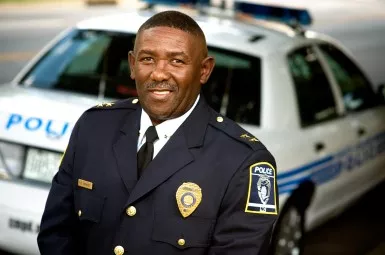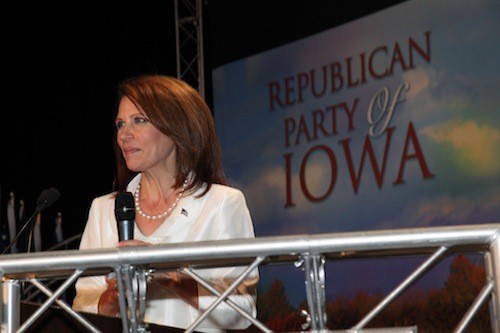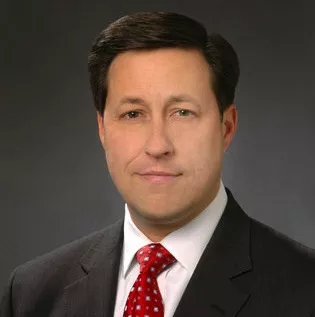Democratic National Convention 2012
Wednesday, August 31, 2011
Democratic National Convention 2012 Democratic National Convention 2012 Notebook: Minority businesses seek convention opportunities, launch website
Posted By Mary C. Curtis on Wed, Aug 31, 2011 at 3:02 PM
“I am energized by the amount of interest there is in the convention,” Mayor Anthony Foxx told me on Tuesday. The inclusive answer came after I asked him his thoughts on the Carolina Regional Minority Partnership Coalition, minority businesses working for a chance at opportunities the 2012 Democratic National Convention will bring to Charlotte.
Foxx said he “applauds the effort” to create any access points for businesses owned by women, minorities and the disabled, and said the local host committee has staff dedicated to incorporating support for local businesses.
When I talked with civil rights attorney and coalition chair James Ferguson, he was enthusiastic about the support of Foxx, former Mayor Harvey Gantt and U.S. Congressman Mel Watt of North Carolina, a member of the Congressional Black Caucus. “We are lobbying on behalf of minorities, to make sure goals are set and met,” said the 68-year-old Ferguson. “We’re in the best possible position to make it happen.”
Ferguson and Charlotte business owner Colette Forrest had the same idea after the Democratic National Committee announced Charlotte as the site of the 2012 convention — and the Carolina Regional Minority Partnership Coalition was born. “We wanted to see minorities come together to be a voice, to be a force, to be heard,” Ferguson told me last week in his historic Excelsior Club on Charlotte’s west side. The occasion was the launch of the coalition’s website. It includes a member directory, a clock ticking down to the convention’s start date and information about the group, which includes members from North and South Carolina, from Winston-Salem to Columbia. (Membership is $50.)
“We’re not official,” Ferguson said. “But we’re doing outreach and we are going to make sure that the Democratic convention is doing what it’s supposed to do.”
Friday, August 26, 2011
Democratic National Convention 2012 Democratic National Convention 2012 Notebook: A command center takes shape
Posted By Mary C. Curtis on Fri, Aug 26, 2011 at 1:11 PM
Early this week, the Charlotte City Council approved a request of close to $600,000 so the police department can renovate its downtown headquarters in preparation for the 2012 Democratic National Convention. On Thursday night, Rodney Monroe, Chief of the Charlotte-Mecklenburg Police Department, gave some details on the “command center” he said, that will be “the department’s management arm for the convention.”
Monroe has been “somewhat tight-lipped” about security, he said. But, though he said, “I wish it was Sept. 8, 2012 and it would be done,” Monroe added, “2012 is going to be an exciting year for us ... it’s going to unfold, you’re going to be in the moment, you’re going to respond to things.” The command center is set to be up by the end of the year or in early January.
Speaking to a meeting of the Charlotte Area Association of Black Journalists, Monroe said the goal was “not to prevent people from coming out and exercising their First Amendment rights” nor “to shut anything down” during the convention, a fear of some businesses and city residents who are still wondering how an influx of more than 35,000 delegates and visitors will affect their lives.
Some protesters are “looking to be disruptive,” he said. “Anarchists, they’re out there; they’re here in the city. We’re just trying to gather as much information as we can.” The CMPD is, he said, working with partners — local, regional and national — that represent the Secret Service, FBI and an alphabet soup of agencies and departments. They are meeting every three to four weeks, he said. “You name it, we have a committee for it.”
Charlotte has sent police officers to help other jurisdictions for events such as the inauguration and economic summits, and departments in other cities will reciprocate, sending officers for the convention. Charlotte and Tampa, Fla., site of the Republican convention, are expecting about $50 million each from Congress for security, the policy since 9/11.
Monroe said he knows the challenges and expectations. Political conventions “determine the leaders of our country.” And Charlotte will be hosting a sitting president, one who “has probably received more threats than any president in history.”
In more than two decades of police work in Washington, D.C., Monroe oversaw arrangements for large gatherings such as the Million Man March. “Events similar to this were common occurrences in Washington, and that gave us a leg up.” As he prepares for DNC 2012, he is investigating technology and social media tools, and said he has studied “flash mobs” in cities such as Philadelphia and Chicago. “Law enforcement will have a legacy,” he said. “We want people talking about the way we were able to conduct the convention,” safely and with “as little disruption as possible.”
He said he doesn’t want residents to think the convention will be the only thing on the department’s radar during that week in September 2012. “We also have the responsibility of the rest of the city,” he said, and amid the crowds and the international attention a political convention will bring, that’s one thing he said he wants the people of Charlotte to remember.
Mary C. Curtis, an award-winning Charlotte, N.C.-based journalist, is a contributor to The Root, NPR, Creative Loafing and the Nieman Watchdog blog. Her “Keeping It Positive” segment airs Wednesdays at 7:10 on TV’s Fox News Rising Charlotte, and she was national correspondent for Politics Daily. Follow her on Twitter: http://twitter.com/mcurtisnc3.
Friday, August 19, 2011
Democratic National Convention 2012 Democratic National Convention 2012 Notebook: GOP candidates Michele Bachmann and Rick Perry steal Carolina spotlight while Homeland Security works (quietly) with police
Posted By Mary C. Curtis on Fri, Aug 19, 2011 at 10:23 AM
With the first in the South primary next door in South Carolina, it was inevitable that Michele Bachmann would head this way after her first-place finish in the Iowa straw poll of Republican hopefuls. She scheduled a fund-raiser this week in Charlotte and (along with Rick Perry, who announced his presidential bid in Charleston) planned appearances in South Carolina.
But preparations for the DNC 2012 in Charlotte didn’t stop. They just took a lower profile as the U.S. Department of Homeland Security came into town this week for training exercises with the Charlotte-Mecklenburg Police Department. It’s all part of the effort to get ready for President Barack Obama, more than 30,000 delegates, plus the media and visitors expected next September.
Congress is still considering a $55 million request to help Charlotte ramp up its security needs for the convention, after Mayor Anthony Foxx made his case (with the mayor of Tampa, site of the GOP convention) in Washington.
When he visited Charlotte after it was chosen as the site of the convention, then-DNC chair Tim Kaine pointed to Chief Rodney Monroe’s more than two decades of police work in Washington, D.C., as a plus in dealing with federal officials and security for high-profile officials. The CMPD, under Monroe, has called on surrounding departments for assistance.
Department spokesman Robert Tufano said, “We cannot discuss specific security training and strategy for obvious reasons but I can tell you that the goal of the Charlotte-Mecklenburg Police Department is to develop and implement, with numerous participating agencies, a seamless security plan that will create a secure environment for the community, dignitaries, event participants and the general public.” He cited planning for venue security, air space security, training, communications and credentialing, but said “the means, methods, specific resources or numbers utilized to carry out protective responsibilities will not be discussed to ensure public safety.”
While the terrorist attacks of 9/11 precipitated the policy of using federal funds to supplement state and local convention security efforts, recent incidents of street crime across the country also must be causing concern. After Memorial Day weekend violence in Charlotte, many noted that crowds filled the streets near the Transportation Center — just across from the Time Warner Cable arena home of convention events. A quick response by community members brought street volunteers and mentors over the July 4th weekend for a peaceful holiday celebration. It was a move that other cities are trying.
Recently, during a visit to Philadelphia, I ran across that city’s mayor, Michael Nutter, and a parade of community groups and others who joined along in a nighttime stroll to counter the images of recent “flash mob” attacks there. It was all about “staying safe” while “having a good time,” he told me. Though he didn’t cite Charlotte’s action as inspiration, Nutter said that he and Mayor Anthony Foxx “stay in touch.”
Expect Charlotte to keep an eye on small efforts to keep the peace even as the feds coordinate more dramatic counter-offensives.
Mary C. Curtis, an award-winning Charlotte, N.C.-based journalist, is a contributor to The Root, NPR, Creative Loafing and the Nieman Watchdog blog. Her “Keeping It Positive” segment airs Wednesdays at 7:10 on TV’s Fox News Rising Charlotte, and she was national correspondent for Politics Daily. Follow her on Twitter. http://twitter.com/mcurtisnc3.
Thursday, August 11, 2011
Democratic National Convention 2012 Democratic National Convention 2012 Notebook: A mayoral campaign with national impact
Posted By Mary C. Curtis on Thu, Aug 11, 2011 at 12:10 PM
Mayor Anthony Foxx formally announced his re-election campaign with a nod to the past and an eye on the future. It was a clever setting — Irwin Avenue Elementary — with an introduction by his former principal, Frances Waller, who remembered “young Anthony” for his “love for learning.”
Foxx talked about job growth and a local economy that has “diversified” on Monday, the day of a stock market sell-off. After the announcement, he acknowledged the economic “headwinds,” but told me he’s “working even harder to help our small businesses, in particular,” and said the city is investing in infrastructure.
His Republican opponent, Scott Stone, an executive with engineering and architecture firm Merrick & Company, has been touting his business bona fides, counting his lack of political experience as a positive, especially when it comes to job creation.
And, in this Charlotte mayoral campaign, DNC 2012 is an issue.
On his website, Stone says a GOP mayor will better safeguard the interests of Charlotte taxpayers and businesses during the event, and he predicts the DNC will use the convention to get a “toe-hold in North Carolina” for union labor.
In his announcement, Foxx counted securing the convention as a big plus, “which will bring thousands of visitors from across the world to our city and generate hundreds of millions of dollars of economic impact and international exposure.”
Though hardly the No. 1 thing on voters’ minds, dueling narratives on just what the convention will mean to the city have nudged into conversations about jobs, education and transportation.
Yes, local and national are inevitably intertwined, with the DNC team saying it’s much too soon to speculate about the fate of the transit center during the convention. (Will it or won’t it be moved?) Democratic National Convention Committee communications director Kristie Greco said: “Any assumptions about security plans or how the transit center will function during the Democratic Convention in September 2012 are extremely premature. Security plans will not be determined until much closer the convention. … The Uptown area and Charlotte's transit system will be open for business during the convention.”
Mary C. Curtis, an award-winning Charlotte, N.C.-based journalist, is a contributor to The Root, NPR, Creative Loafing and the Nieman Watchdog blog. Her “Keeping It Positive” segment airs Wednesdays at 7:10 on TV’s Fox News Rising Charlotte, and she was national correspondent for Politics Daily. Follow her on Twitter at http://twitter.com/mcurtisnc3.
Friday, August 5, 2011
Democratic National Convention 2012 Democratic National Convention 2012 Notebook: It’s been six months already?
Posted By Mary C. Curtis on Fri, Aug 5, 2011 at 11:42 AM
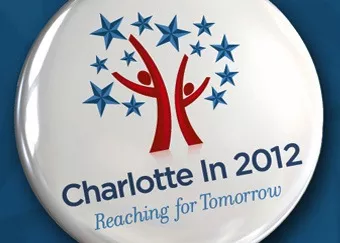
Was it only six months ago that Charlotte was celebrating its besting of four other finalist cities to be named the site of the 2012 Democratic National Convention? With a little more than a year to go, a few grumbles are intruding on the party mood, but for now, organizers say everything is progressing nicely.
At a meeting organized by the Charlotte Chamber in June, local and regional businesses asked for assurances they would be able to share in opportunities the convention would bring. This week, Democratic National Convention Committee CEO Steve Kerrigan said: “The DNCC is committed to ensuring that businesses directly and indirectly involved with the convention reflect the diversity of the city. In addition to a robust outreach effort, the Host Committee will soon publish an online vendor directory of local businesses so organizations hosting events around the convention can search for local goods and services that fit their needs. It will be a tool that helps outside groups meet and maintain the same standards of diversity and inclusion that we have established at the DNCC.”
At the same time, a group of black businesses has formed the Carolina Regional Minority Partnership Coalition (CRMPC) “to ensure that minority business owners are able to equally participate with the 2012 DNC Convention and have timely access to information concerning the 2012 DNC Convention.” The group's chair and spokesperson is Charlotte attorney James Ferguson II.
And in a move that reflects the partisan prism through which any politically related move is increasingly being judged, the conservative National Review online has tweaked the city with the headline “The DNC War on Public Transportation.” The move reflects talk — very much in its early stages — that the Uptown bus station may have to be moved as a security precaution during the convention just across the street.
Six months in, Kerrigan said everything is on track. “The DNCC has moved into office space Uptown and has begun setting up our operation … reaching out to counterparts in the city, and starting the planning necessary to put on the Democratic Convention,” he said. “We will continue to grow in stages as we approach the convention.”
Still, Charlotte and its players are realizing that the euphoria of capturing such a high-profile event can calm when met with the realities of what’s at stake.
Mary C. Curtis, an award-winning Charlotte, N.C.-based journalist, is a contributor to The Root, NPR, Creative Loafing and the Nieman Watchdog blog. Her “Keeping It Positive” segment airs Wednesdays at 7:10 on TV’s Fox News Rising Charlotte, and she was national correspondent for Politics Daily. Follow her on Twitter. http://twitter.com/mcurtisnc3.
Friday, July 29, 2011
Democratic National Convention 2012 Democratic National Convention 2012 Notebook: Here’s hoping that federal security money is bipartisan
Posted By Mary C. Curtis on Fri, Jul 29, 2011 at 11:20 AM
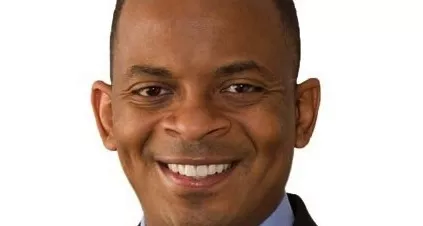
In a recent press conference, Mayor Anthony Foxx was pretty optimistic about the $55 million Congress has been asked to allocate toward the security set-up at DNC 2012 in Charlotte. After all, he explained, he made his pitch to members of both houses of Congress with the mayor of Tampa, Fla., whose city is hosting the 2012 Republican National Convention.
While he called the political climate in Washington “tough,” particularly when the topic is spending, Foxx said of the federal money, "We don't contemplate not getting it.” Of course, partisan bickering over raising the debt ceiling has only gotten more acrimonious since then.
On Tuesday, Foxx issued a formal statement on the debt debate consuming D.C. “I implore Congress to do what Charlotte businesses, parents, and every member of our community do every day,” it said. “Mourn the absence of better choices and make the difficult calls required to move us forward.”
The statement said: “If our nation fails to maintain the bedrock of its own full faith and credit, no one will remember the stand taken by Republicans or Democrats. They will not recall failed bills or negotiations. They will remember that, despite the known risks, our government failed to act.”
Since 9/11, convention sites have been designated as a “national security event” as a first step before receiving funds from Congress. For Denver in 2008, the money came in May before the late summer meeting.
In Charlotte’s case, Foxx said the money would be used for, among other things, bringing in between 2,400 and 3,400 additional police officers. He cited the need to protect the public as well as those attending the convention “in a world that’s every bit as dangerous as it was four years ago.”
But, the mayor also acknowledged that he’s “concerned about everything we need from the federal government.”
While the Charlotte host committee, city officials and the DNC staff inexorably march toward the 2012 convention, with plans taking shape every day, they are hardly operating in a vacuum. The toxic cloud emanating from Washington can’t be ignored.
Mary C. Curtis, an award-winning Charlotte, N.C.-based journalist, is a contributor to The Root, NPR, Creative Loafing and the Nieman Watchdog blog. Her “Keeping It Positive” segment airs Wednesdays at 7:10 on TV’s Fox News Rising Charlotte, and she was national correspondent for Politics Daily. Follow her on Twitter. http://twitter.com/mcurtisnc3.
Thursday, July 14, 2011
News / Democratic National Convention 2012 Democratic National Convention 2012 Notebook: A new fan pitches the convention at Knights game and around town
Posted By Mary C. Curtis on Thu, Jul 14, 2011 at 10:34 AM

This weekend, Steve Kerrigan is exchanging his Boston Red Sox cap for one labeled "Charlotte Knights." The newly minted fan is throwing out the first pitch at the team’s Saturday game against the Louisville Bats at Knight Stadium in Fort Mill, S.C. Kerrigan said, “It’s sort of a childhood dream of any young American,” especially if that child grows up to be the CEO of Charlotte's 2012 Democratic National Convention. It’s the result of a promise made by the team — “more tongue in cheek” — during the bid process that eventually brought the convention to Charlotte.
The 39-year-old Kerrigan may have been born in Lancaster (that’s Massachusetts, not South Carolina), but now he’s anxious to visit the Southern counterpart to his Northeastern hometown, as well as other spots in the region. He and more than 20 members of his team have settled in Charlotte 14 months before the convention “so that we can really get engaged and become a part of this community,” he said. “A lot of us on staff love baseball, we love minor league ball.” They’re also sort of fans of the White Sox — “it’s the president’s team” — and the Knights are the Sox’s Triple-A affiliate. So it all works out.
More staff will be moving this way in time for Kerrigan’s 40th birthday in September. He can show them some of the places he’s visited: the Harvey B. Gantt Center for African-American Arts + Culture, NoDa and the Levine Museum of the New South. He’d like to see a Panthers game, make a return visit to the Bobcats, and “get out and use the Whitewater Center.” (He once had a kayak.)
“We have so many great things to offer,” Kerrigan said, as an Uptown-residing “Charlottean.” For counsel, he has Joanne Peters, a Providence High grad who’s been working with the DNC in Washington but returned to work with him on her hometown’s big event.
This week, we sat at the Tic Toc Café — another Uptown spot Kerrigan was visiting for the first time — talking about the political implications of Charlotte’s hosting the convention, what his former boss the late Sen. Ted Kennedy and current boss President Barack Obama do and don’t have in common, and how his team hopes to give back through community service projects.
Stay tuned to my Creative Loafing coverage of DNC 2012 for the full report and to catch up on what you’ve missed so far.
Mary C. Curtis, an award-winning Charlotte, N.C.-based journalist, is a contributor to The Root, NPR, Creative Loafing and the Nieman Watchdog blog. Her “Keeping It Positive” segment airs Wednesdays at 7:10 on TV’s Fox News Rising Charlotte, and she was national correspondent for Politics Daily. Follow her on Twitter. http://twitter.com/mcurtisnc3.
Thursday, July 7, 2011
News / Democratic National Convention 2012 Democratic National Convention 2012 Notebook: Charlotte art museums — Bechtler, Mint and Harvey Gantt Center — prepare to impress
Posted By Mary C. Curtis on Thu, Jul 7, 2011 at 10:21 AM
“For some outside of our region,” John Boyer, president and CEO of the Bechtler Museum of Modern Art told me, Charlotte has “not traditionally been seen as a place of great cultural richness and advancement.”
That’s an understatement. In national reports after Charlotte was chosen to host the 2012 Democratic National Convention, NASCAR was mentioned, with barbecue close behind. The city’s arts scene didn’t make a vivid impression, though, as Boyer said, perhaps “it should have.”
A recent piece I worked on for Fox News Charlotte’s “Reboot: Charlotte” series showcased South Tryon Street’s Levine Center for the Arts. “We’ve gotten a tremendous response so far from lots of organizations and folks that are connected with the DNC,” with particular interest in Uptown cultural buildings for special events, said Scott Provancher, president of the Arts & Science Council, which is working with the DNC host committee.
David Taylor, president and CEO of the Harvey B. Gantt Center for African- American Arts + Culture, said the museum’s curatorial staff is pulling together the final components of what will be exhibited. “It will be something that Charlotte and North Carolina can be very, very proud of.” Taylor touted the “diverse cultural experience” a visitor can enjoy on the “cultural mile” from the McColl Center for Visual Art to the Gantt.
During the convention, the Mint Museum Uptown is featuring the work of Thornton Dial, a self-taught African-American artist. Kathleen Jameson, president and CEO of the Mint, said of Dial’s work: “It’s not political — either left or right — but it’s about our shared experience as Americans.” Also in the works: a major Mint show that features the permanent collection and will travel to New York and a Randolph Road exhibit around North Carolina pottery. There may be a shuttle between both locations during the DNC. Jameson said the museum is talking with artists about commissioning work in response to the convention “so that it continues to live and that we continue to talk about it after that week.”
The Bechtler plans a major exhibition of the works of Alberto Giacometti “one of the titans of 20th century modernism” during the DNC, said Boyer. The Bechtler’s collection is strong because of the family’s personal relationship with Giacometti, as well as his brothers Bruno, an architect, and Diego, an artist in his own right. Boyer said the exhibition will focus on the brothers, and particularly the accomplishments of Alberto as a painter, a draftsman and — most importantly — a sculptor.
Then, there is the Bechtler’s Obama connection through one of its most important works, a landscape from 1952 by the Russian, later French artist Nicolas de Staël. When the Obamas moved into the White House and like other first families got to personalize the art, they chose a similar work by the artist from the Hirshhorn Museum in Washington, D.C. “I would love for the First Lady and perhaps even the president to have the chance to come see our beautiful Nicolas de Staël,” said Boyer, “not unlike the one they get to live with every day in the White House.”
A Charlotte museum can hope.
Mary C. Curtis, an award-winning Charlotte, N.C.-based journalist, is a contributor to The Root, NPR, Creative Loafing and the Nieman Watchdog blog. Her “Keeping It Positive” segment airs Wednesdays at 7:10 on TV’s Fox News Rising Charlotte, and she was national correspondent for Politics Daily. Follow her on Twitter. http://twitter.com/mcurtisnc3.
Thursday, June 30, 2011
News / Democratic National Convention 2012 Democratic National Convention 2012 Notebook: Some public relations lessons ... from Detroit?
Posted By Mary C. Curtis on Thu, Jun 30, 2011 at 11:23 AM
To the folks who thought boosterism Charlotte-style could not be more frenzied, I just returned from a place that could give lessons. If ever a city had to dig itself out of a public relations hole, it would be Detroit. As Charlotte works out any flaws — including taking another look at the operation of the Charlotte Regional Visitors Authority — Charlotte’s problems seem small when compared to the shrinking city on the Detroit River. (After the 2010 census, Charlotte moved ahead to rank at No. 17 to Detroit’s 18.) Current Mayor Dave Bing is trying to rebuild while living down the memory of his recently paroled predecessor Kwame Kilpatrick, and Michigan’s auto industry — on a slow road back — is no longer an automatic path to the middle class.
I traveled there for the National Society of Newspaper Columnists annual conference, to moderate the panel “Lies, Damned Lies and Talking Points: How to write about hot-button political issues in the upcoming election cycle without getting played.” And I got to pick up a writing award in a ceremony in the gorgeous Detroit Institute of Arts where our dinner companion was “Detroit Industry,” the massive Diego Rivera mural looking on from above.
Each day was packed with field trips, some like the Motown Museum a sign of past glory. The Heidelberg Project promised a creative renaissance; the outdoor art installation in a once-crumbling block has been transformed by the vision of neighborhood artist Tyree Guyton.
Most outings looked forward: a stop at TechTown, the Wayne State University research and technology park that’s an incubator for entrepreneurs; a tour of Quicken Loan’s new downtown office, and lunch at Compuware. The phrases we heard: “one of the best-kept secrets in the country” and “it’s not about problems, it’s about people.” But as panelist Rochelle Riley from the Detroit Free Press reminded everyone, opportunities won’t mean much if public schools don’t prepare all children for those new jobs.
On a personal tour with a friend, I saw neat homes with manicured front yards next to burned-out hulks, mansions a block away from rubble. It took a long time for Detroit to become unfortunate shorthand for what a troubled city looks like. It makes that rise to glory tougher no matter how many community and business leaders work to make it so.
Even though it’s easy to make fun of Charlotte’s world-class aspirations, things could be worse. But remember that Detroit hosted the 1980 Republican convention that nominated Ronald “Morning in America” Reagan.
Without a strong commitment to economic and infrastructure development and strong schools, a convention is a nice, but passing, event.
Mary C. Curtis, an award-winning Charlotte, N.C.-based journalist, is a contributor to The Root, NPR, Creative Loafing and the Nieman Watchdog blog. Her “Keeping It Positive” segment airs Wednesdays at 7:10 on TV’s Fox News Rising Charlotte, and she was national correspondent for Politics Daily. Follow her on Twitter. http://twitter.com/mcurtisnc3.
Thursday, June 23, 2011
News / Democratic National Convention 2012 Democratic National Convention 2012 Notebook: Will Charlotte’s economy be ready for prime time?
Posted By Mary C. Curtis on Thu, Jun 23, 2011 at 10:22 AM
The backdrop for Mayor Anthony Foxx was impressive. He stood with other U.S. mayors — White House in the background — after a meeting with President Barack Obama on Monday to discuss economic challenges in American cities. Politico included Foxx on its list (along with Philadelphia's Michael Nutter, Oklahoma City's Mick Cornett and Los Angeles's Antonio Villaraigosa) of “regular visitors to the White House.” (Cornett is the Republican.)
It came after a good weekend for Foxx, who, during a meeting of the U.S. Conference of Mayors in Baltimore, was appointed to the advisory board of the executive committee. He has served as chair of the group’s small business task force.
In the White House meeting, officially and optimistically called “the State of American Cities and Signs of Hope,” Foxx — according to a statement from the mayor’s office — outlined the obstacles of “reducing unemployment rates, increasing government revenues and assisting small businesses secure access to capital.” Foxx used some Charlotte achievements as examples. On the day the mayor met with the president and his advisers, the hospitality services company Compass Group USA Inc., announced plans to bring 200 jobs to Charlotte.
So far, so good for the mayor who has been a visible point person as the Democratic National Convention 2012 team arrives in Charlotte.
Then, a report from the IHS Global Insight research firm had mixed results for the city. It predicted the region would return to its pre-recession employment peak by mid-2014 — ahead of Cleveland, Detroit and Las Vegas but lagging behind Raleigh and Dallas. Still, the mayor noted that in the first quarter of 2011, 268 new or expanding firms have created more than 2,300 jobs.
With the goal posts set to 2012, 2014 and beyond, it’s easy to look past Foxx’s re-election bid in November, unless you’re the candidate.
This week, Foxx heads to Seattle with Charlotte businesspeople, though it’s doubtful the trip will result in as interesting a photo-op as last week’s New York breakfast with Fox News Channel President Roger Ailes and former Mayor David Dinkins. It takes a convention to bring that trio together.
Mary C. Curtis, an award-winning Charlotte, N.C.-based journalist, is a contributor to The Root, NPR, Creative Loafing and the Nieman Watchdog blog. Her “Keeping It Positive” segment airs Wednesdays at 7:10 on TV’s Fox News Rising Charlotte, and she was national correspondent for Politics Daily. Follow her on Twitter. http://twitter.com/mcurtisnc3.



